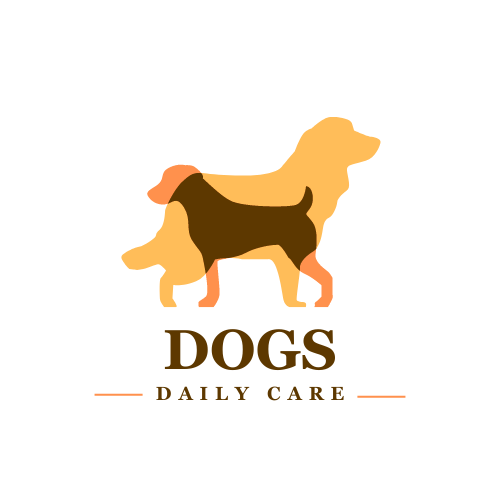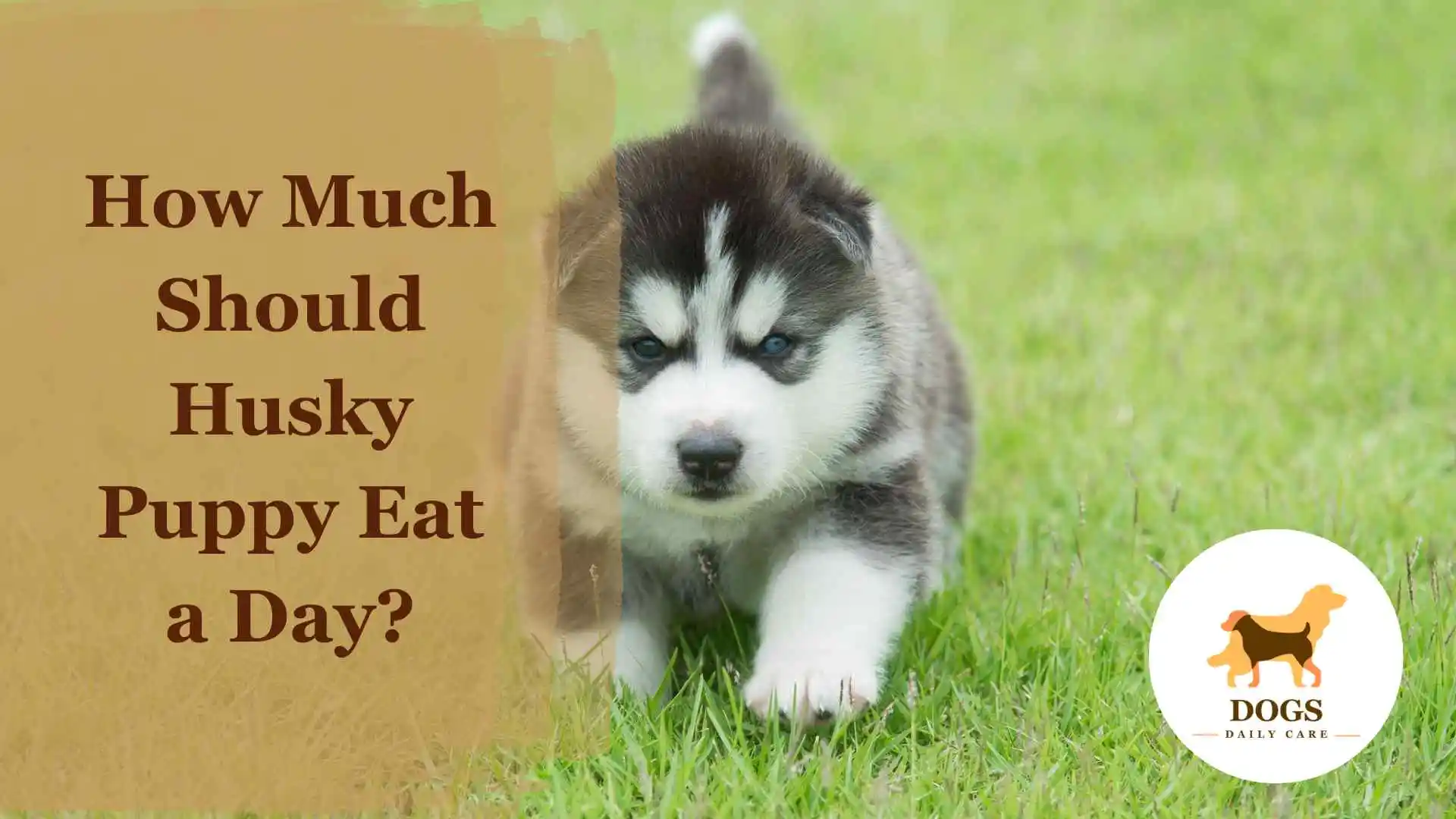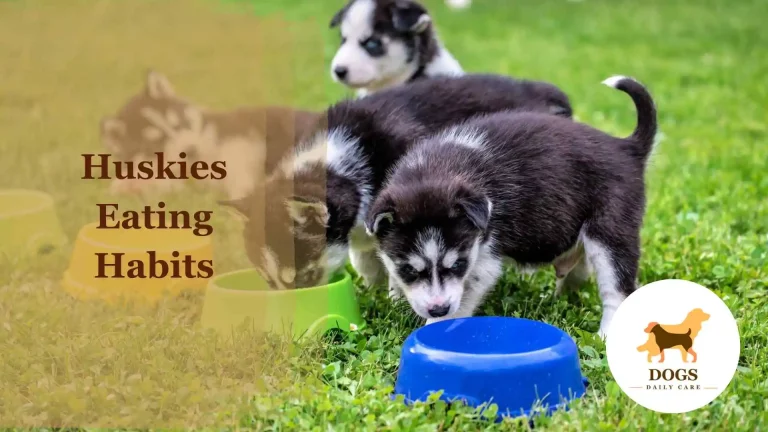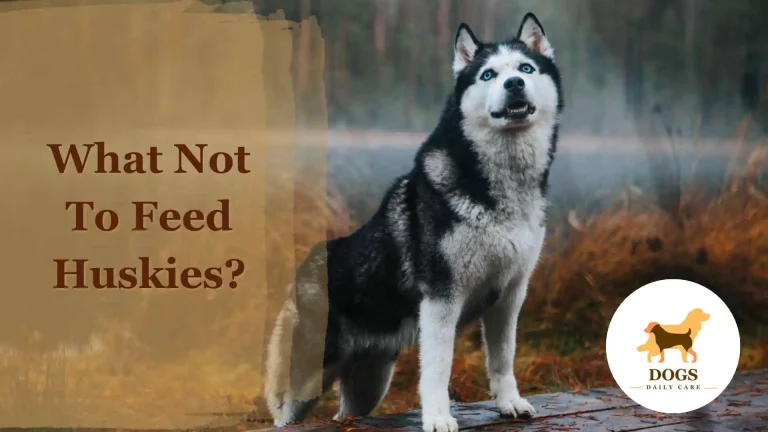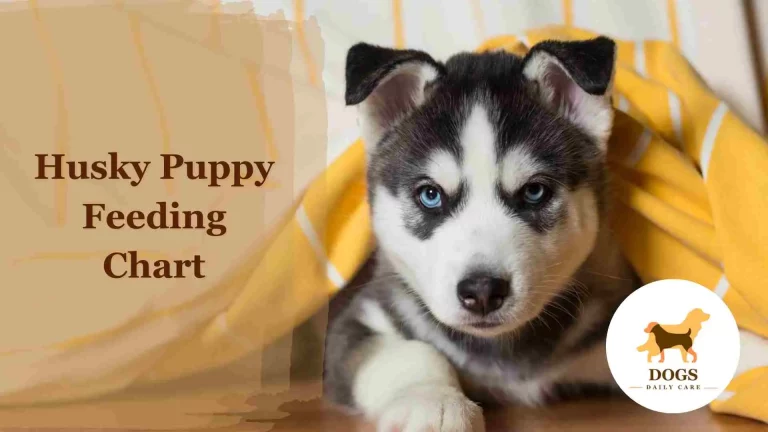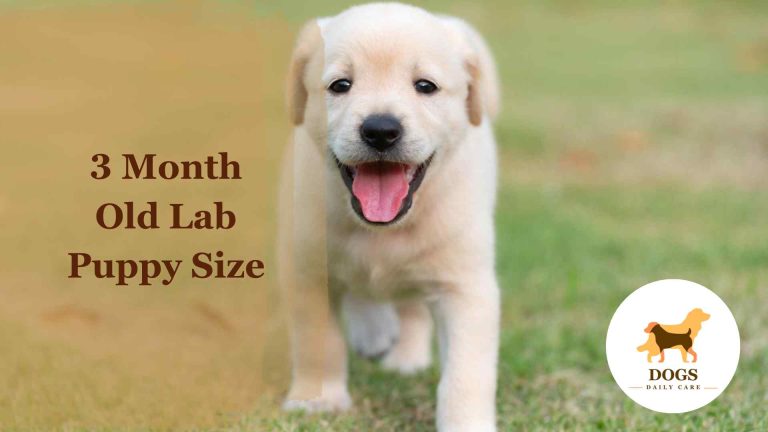How Much Should a Husky Puppy Eat a Day? – An Ultimate Guide
Welcoming a Husky puppy into your home is a bundle of joy, excitement, and—let’s admit it—a fair number of challenges. One of the first questions that new Husky parents often find themselves grappling with is: “How much should my Husky puppy eat a day?” This question isn’t just about keeping those adorable paws moving; it’s a critical aspect of your Husky’s overall health and development.
Proper nutrition is a cornerstone for any pet, but for Huskies, a breed known for their boundless energy and unique metabolic rates, it’s even more crucial. A well-balanced diet ensures that your Husky puppy grows up to be strong, healthy, and, of course, happy. Whether you’ve just brought home a fluffy furball or are planning to, you’ll want to get the feeding schedule just right.
In this comprehensive guide, we’ll delve deep into the nutritional needs of Husky puppies, discussing factors that influence how much food they require, general feeding guidelines, and signs to look out for that may indicate underfeeding or overfeeding. So, grab a notepad (and maybe a pawful of treats for your pup) and let’s get started on this journey to ensuring your Husky puppy thrives!
Understanding Your Husky Puppy’s Nutritional Needs
Every dog breed is unique, and Huskies are no exception. Originating from the cold climates of Siberia, Huskies have adapted to require a different kind of fuel for their high-energy lifestyles. Understanding the nutritional needs of your Husky puppy is the first step toward ensuring a balanced diet that contributes to optimal health and growth. You can’t feed a Husky like you would a Chihuahua and expect the same results!
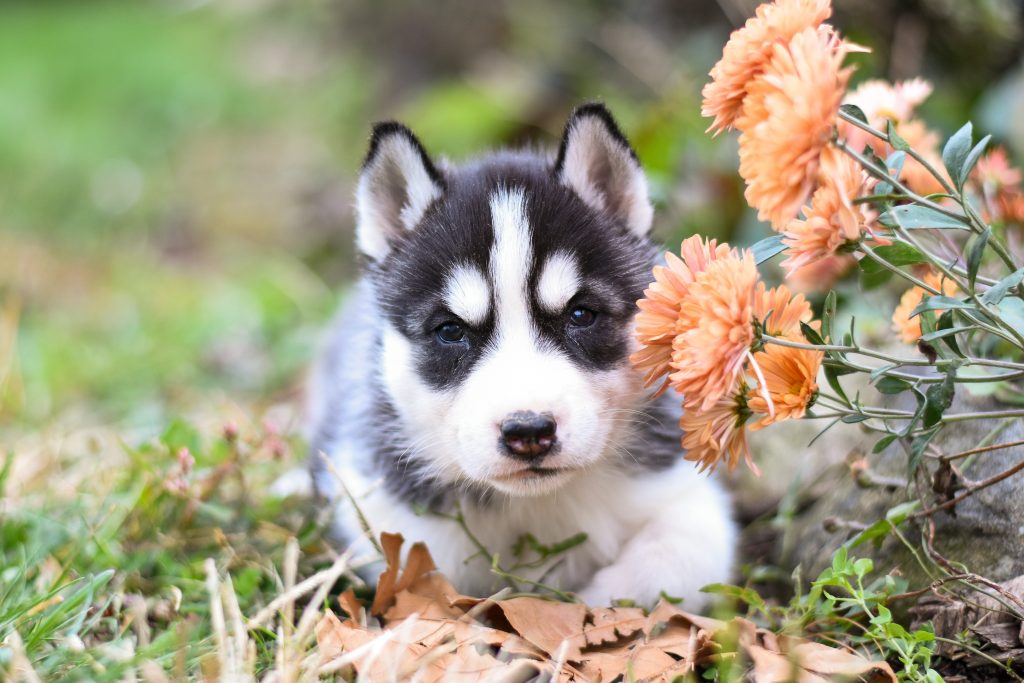
Protein, fats, and carbohydrates are the key pillars of any dog’s diet, but when it comes to Huskies, the ratios may differ. A higher protein intake is generally recommended to support muscle development, especially in growing puppies. Healthy fats provide essential fatty acids and act as an excellent energy source, while a moderate amount of carbohydrates ensures that your Husky has the stamina for playtime and walks.
Aside from these macronutrients, Husky puppies also require a well-rounded intake of vitamins and minerals, including calcium for bone development and various vitamins for immune system support. Omega-3 and Omega-6 fatty acids are essential for a shiny coat and healthy skin. Many high-quality commercial dog foods designed for Husky puppies include these nutrients, but you can also consult your vet for supplement recommendations.
Factors Affecting How Much a Husky Puppy Should Eat
If you’re searching for a one-size-fits-all answer to how much your Husky puppy should eat, you might be disappointed. Several variables come into play, each influencing your puppy’s daily calorie requirements. From the age of the puppy to its activity level and overall health, these factors combine to create a personalized feeding guide that can help your Husky thrive.
The age of your Husky puppy is a significant determinant in how much food they should consume. Younger puppies, especially those between 2 to 4 months, require frequent, small meals packed with nutrients to help them grow. As they age, the frequency might decrease, but the portion sizes will increase. Activity level is another crucial factor; a more active Husky will naturally require more calories to sustain its energy.
Lastly, your Husky puppy’s health status can influence their diet. Some Huskies might have sensitivities or allergies that require a special diet. Conditions like obesity or underweight also dictate a modification in calorie intake. In any case, when you notice any health-related issues, consulting a veterinarian is crucial for specialized advice tailored to your puppy’s needs.
General Feeding Guidelines for Husky Puppies
By now, you’re probably eager to get down to the nitty-gritty: How much food should you actually put in that bowl? While it’s hard to provide a one-size-fits-all answer, there are some general feeding guidelines that can serve as a starting point for your Husky puppy’s nutritional journey. Daily calorie requirements for Huskies can range from 800 to 1,400 calories, depending on age and activity level.
When it comes to portion sizes, think of your Husky’s age and growth stages. For puppies aged 2 to 4 months, 3 to 4 small meals a day are often recommended. As they grow older, say 6 months and up, you may reduce the frequency to 2 meals a day but increase the portion size. Don’t forget that Huskies have a tendency to become overweight if overfed, so measuring portions accurately is essential.
Meal frequency is also a topic of consideration. While younger puppies may need frequent feeding, older Huskies benefit from a more regimented schedule. Consistency is key to helping your Husky develop a healthy eating routine. Setting a regular feeding schedule not only helps your pup know when it’s time to eat but also aids in house training.
Favorite Food Items of Husky Puppies
Just like us humans, Husky puppies have their own set of favorite foods that can make mealtime a joyous occasion for them. Ever noticed your Husky’s eyes light up at the sight of a particular treat? While they aren’t particularly picky eaters, there are certain food items that Husky puppies seem to enjoy more than others.
Meat: Chicken, Beef, and Lamb
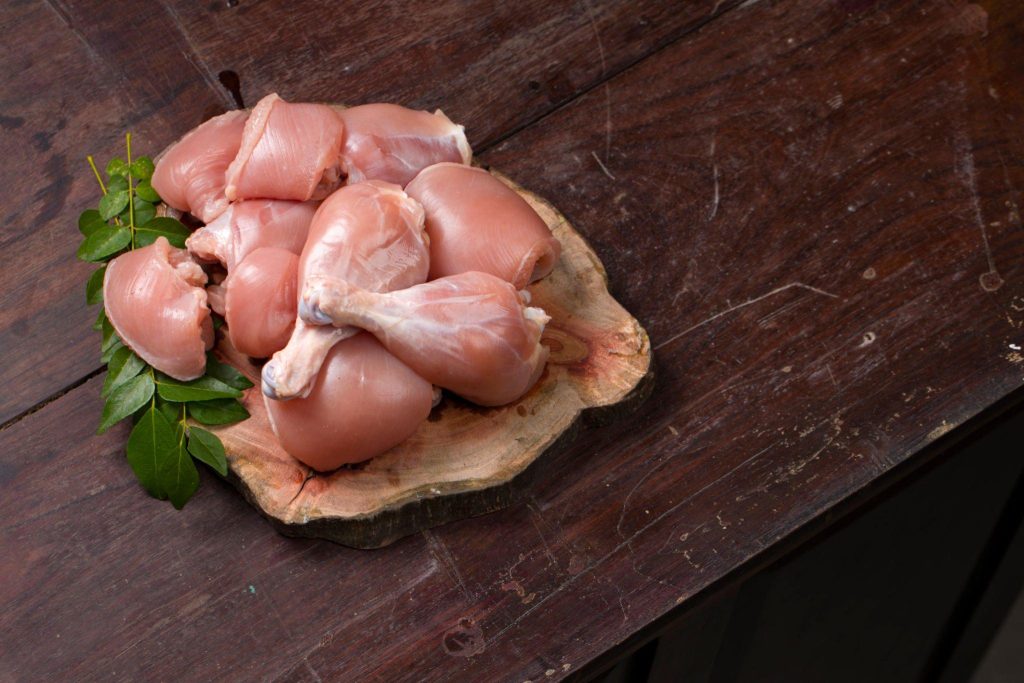
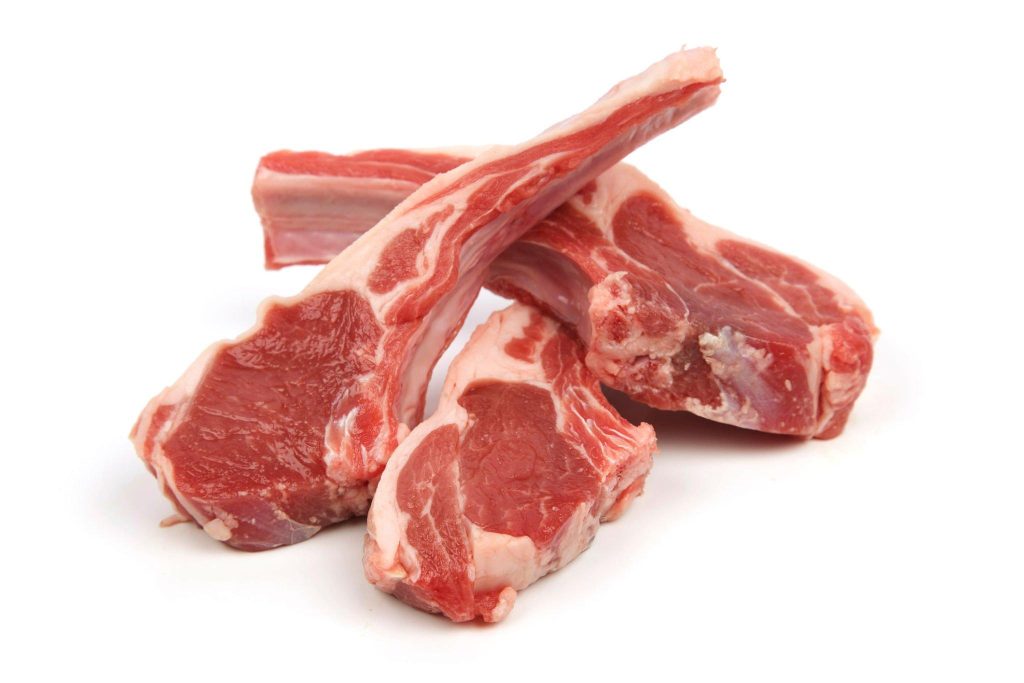
Husky puppies love meat, and it’s not hard to see why. Chicken, beef, and lamb are protein-packed options that fuel their energetic lifestyle. Chicken is generally lean and easy to digest, making it a go-to choice for many Husky owners. Beef offers a rich, robust flavor that canines adore, while lamb serves as a good alternative protein for puppies with chicken or beef sensitivities.
Fish: Salmon
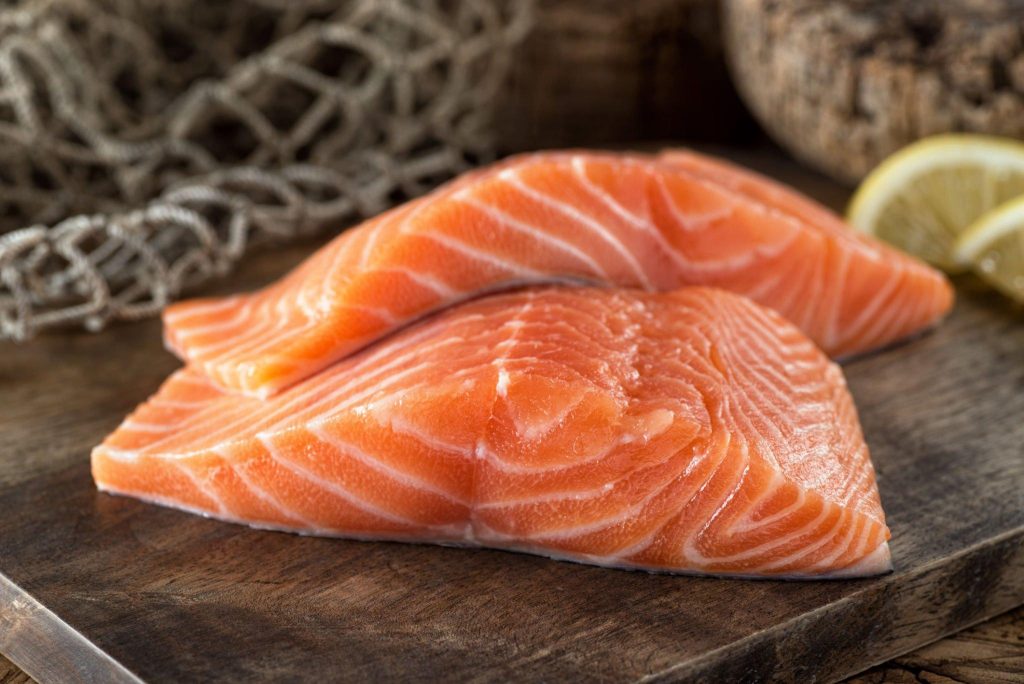
Fish, particularly salmon, is a favorite among Husky puppies. Not only does it provide essential protein, but it’s also a rich source of Omega-3 fatty acids. These are beneficial for brain development and maintaining a glossy coat. When feeding salmon to your Husky puppy, ensure it’s well-cooked to avoid any risk of parasites.
Fruits: Blueberries
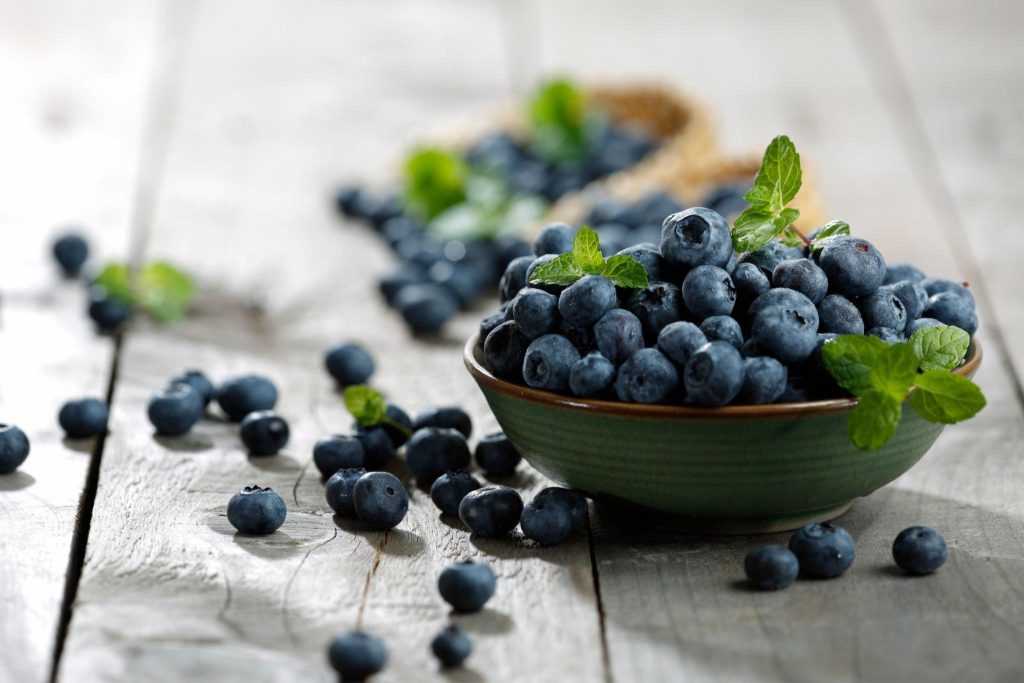
Blueberries are a superfood not just for humans but also for Huskies. Rich in antioxidants and low in calories, these tiny berries can be a refreshing and nutritious snack. However, remember to serve them in moderation, as too much fruit can lead to digestive issues.
Vegetables: Carrots and Sweet Potatoes
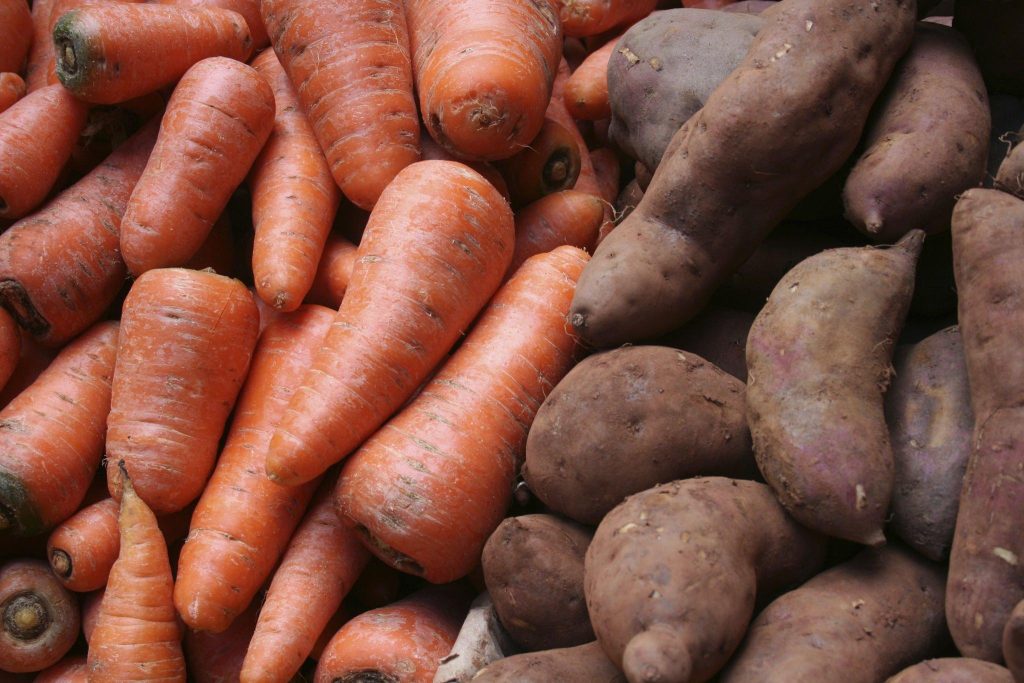
Vegetables like carrots and sweet potatoes are also high on the list of Husky favorites. Carrots are low in calories and high in fiber, making them a great treat for teething puppies. Sweet potatoes are rich in vitamins and can be an excellent source of complex carbohydrates for sustained energy.
While these favorites can make for excellent treats or meal add-ons, it’s crucial to remember that they should not replace a balanced, age-appropriate diet specifically designed for Husky puppies. Treats and favorites should make up no more than 10% of your pup’s daily calorie intake. So, while it’s great to spoil them a little, make sure it’s in moderation to ensure they stay healthy and happy.
Signs of Overfeeding and Underfeeding
Feeding your Husky puppy, the right amount can sometimes feel like a balancing act. So how do you know if you’re getting it just right, or tipping the scales towards overfeeding or underfeeding? Knowing the signs can go a long way in ensuring your Husky puppy grows up strong and healthy.
Let’s start with the symptoms of overfeeding. If you notice your Husky puppy becoming lethargic, developing a potbelly, or showing reduced interest in physical activities, it’s time to reevaluate their diet. Overfeeding can also result in digestive issues like diarrhea or constipation, and over the long term, may lead to obesity and associated health issues such as diabetes and joint problems.
On the flip side, underfeeding your Husky can lead to its own set of problems. Signs of underfeeding include visible ribs and hip bones, low energy levels, and poor coat quality. Your Husky might also display increased irritability or difficulty focusing. If any of these signs become evident, consult your vet immediately for a more personalized feeding plan tailored to your Husky puppy’s needs.
Commercial vs. Home-Cooked Meals
One of the dilemmas that many Husky puppy owners face is choosing between commercial dog food and home-cooked meals. Both options have their merits and downsides, and the best choice often depends on your Husky’s specific needs, as well as your own lifestyle and budget. In this section, we’ll break down the pros and cons of each to help you make an informed decision for your furry friend.
Commercial dog food, especially those specifically formulated for Husky puppies, can be a convenient and balanced option. These products undergo rigorous testing and are designed to meet the nutritional needs of growing Huskies. They’re easy to store, have a longer shelf-life, and take the guesswork out of nutrition. However, some brands may include filler ingredients or preservatives that might not sit well with your pup.
Home-cooked meals, on the other hand, give you complete control over the ingredients that go into your Husky puppy’s diet. This is especially beneficial if your dog has allergies or dietary restrictions. Fresh meat, vegetables, and whole grains can make mealtime more exciting for your pet. But it’s crucial to consult a vet or a canine nutritionist to ensure you’re meeting all the nutritional requirements, as home-cooked meals can sometimes lack essential nutrients if not properly planned.
When to Consult a Veterinarian?
No matter how much research you do or how carefully you follow feeding guidelines, there are times when consulting a veterinarian is the best course of action. Whether you’re dealing with persistent digestive issues or notice sudden changes in your Husky puppy’s appetite, a professional opinion is invaluable. After all, when it comes to your pup’s health, it’s always better to be safe than sorry.
If your Husky is showing signs of underfeeding or overfeeding, despite following general guidelines, it’s a good idea to consult a vet. They can perform a thorough examination, which may include blood tests or imaging studies, to rule out any underlying health issues. Your vet will also be able to provide a personalized feeding plan tailored to meet your Husky puppy’s specific nutritional needs.
Moreover, if you’re considering a significant dietary change, such as switching from commercial dog food to home-cooked meals or vice versa, a vet consultation is highly recommended. They can offer advice on making the transition smooth and ensure that the new diet meets all the nutritional benchmarks necessary for your Husky’s healthy growth and development.
Frequently Asked Questions
1. How Many Times a Day Should I Feed My Husky Puppy?
The frequency of feeding largely depends on your Husky puppy’s age. Younger puppies between 2 to 4 months typically require 3 to 4 smaller meals a day. As your Husky matures, you can reduce this to 2 larger meals a day from around 6 months onwards.
2. Can I Feed My Husky Puppy Human Food?
While it’s tempting to share your meal with your adorable Husky, not all human foods are safe for dogs. Certain foods like chocolate, grapes, and onions are toxic to dogs. If you decide to give them human food, make sure it’s dog-safe and only in moderation, keeping in mind their daily calorie intake.
3. What Should I Do if My Husky Puppy Isn’t Eating?
If your Husky puppy refuses to eat, it could be due to various reasons ranging from stress to health issues. If the lack of appetite persists for more than a day, it’s advisable to consult a veterinarian for a proper diagnosis.
4. How Can I Determine If My Husky Puppy Is Overweight or Underweight?
Checking your Husky’s body condition regularly can give you clues. An underweight dog will have visible ribs and hip bones, while an overweight one may have a noticeable potbelly. For an accurate assessment, consult your veterinarian.
5. Is Wet Food Better Than Dry Food for Husky Puppies?
Both wet and dry dog food have their merits. Wet food can be more palatable and easier for puppies to chew, while dry kibble is convenient and helps keep teeth clean. Discuss with your veterinarian to decide which is best for your Husky puppy.
Conclusion
Feeding your Husky puppy, the right way is more than just a matter of filling a bowl; it’s about setting the foundation for a long, healthy, and happy life. By now, you should have a comprehensive understanding of your Husky puppy’s nutritional needs, the signs of overfeeding and underfeeding, and the options between commercial and home-cooked meals.
Always remember, each Husky is unique and may have specific dietary needs or preferences. That’s why it’s crucial to monitor your pup’s condition and consult a veterinarian when in doubt. With proper care, balanced nutrition, and a little love, you’re well on your way to raising a happy, healthy Husky puppy.
Thank you for taking the time to read this guide on “How Much Should a Husky Puppy Eat a Day.” We hope this information has been valuable and aids you in making informed decisions for your furry family member. For more tips on Husky puppy care, stay tuned to our blog!
